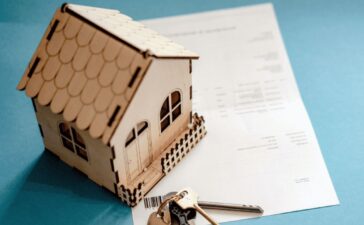To get the best results in an HVAC system, you must optimize it. An efficient HVAC system results in reduced power consumption and can lower your energy bill. Besides, it will do more work in less time. Here are some of the things that make an efficient HVAC system.
- Make the building airtight
If you live in a cold or hot climate, you can reduce the amount of energy that is wasted. It can be done by tightening the envelope of a building. If it is well done, it can help save up to 37 percent of energy. It is easier to regulate the temperature in an airtight building with an Absolute Airflow. Note that a normal house loses 50 percent of HVAC energy to wastage. So when you make the house airtight, the energy is forced to circulate within the enclosure. It exerts less pressure on the system and saves on maintenance costs. A tight envelope enhances the comfort of people living in a room. It separates the house from the external environment and minimizes energy usage
- Ensure zero leakage
Leakages are the avenues through which energy is lost from most houses. It makes the HVAC system inefficient. Leakages through the duct or poorly installed systems exert pressure to the system. Also, holes, poor connections, and non-insulated ducts could make the system inefficient.
- Balancing the system
A system with coils, fans, and filters that work optimally is said to be well balanced. Also, the fans, the coils, and the filters must be in good working condition. But if the system is inefficient, let a technician compare the output with the manufacturer’s specifications.
- The Rating
An air conditioner rating is referred to as a Seasonal Energy-efficient Ratio. The ratio determines how efficient the system is. Units that have higher SEER ratings are more efficient. So you should pick an HVAC system with a higher rating. Also, systems that enjoy higher SEER ratings use less energy. Besides, if the SEER rating is high, less energy is wasted thus. It allows the HVAC system to be more efficient since more energy is converted either into heat or cool air.
- The age of an HVAC system
Older systems are less efficient compared to the new versions. Generally, the old designs require more energy and time to give the same output as newer models. Also, newer models use less energy and will give results in a short period. So, upgrading the older system is one of the methods you can use to improve the efficiency of the unit. When you replace air conditioners with the newer models, you will save on energy and time.
- Care and maintenance
Regular maintenance is important. It ensures that the HVAC system is working efficiently. Cleaning the system regularly allows it to perform better. Also, the filters should be cleaned or changed regularly. It removes blockages and ensures that they are free from dust and particles. It determines the volume of air the system can draw or release into the environment.
- Load Capacity
The load capacity is an important aspect as well. It determines the amount of energy that the system consumes. The size of the building, number of rooms and the envelope are all important. They determine the amount of work that the HVAC system must do each day. The lighting system used determines the amount of heat generated. It determines the strain it puts on the system.
- The setting
The setting selected determines the amount of energy that the unit uses. It also determines the number of hours the HVAC system needs to do the job at hand. Optimizing the setting is vital. It helps to maintain the temperature and enhance the comfort of the room without using too much power.
- The size and installation
The size of the HVAC system and how it was installed determines how efficient it will be. A smaller unit will need to do more work to meet the needs of a bigger house. The contractor should recommend the correct size. It will help you maximize the efficiency of the system. Also, the location of the unit, the ductwork and insulation are all important factors. They determine the efficiency of the HVAC system.
However, none of these aspects alone can make the HVAC system efficient. But when they are combined, they result in an efficient system that saves on energy. So when you notice that your HVAC system is inefficient, check and ensure that each part of the system is optimized.






